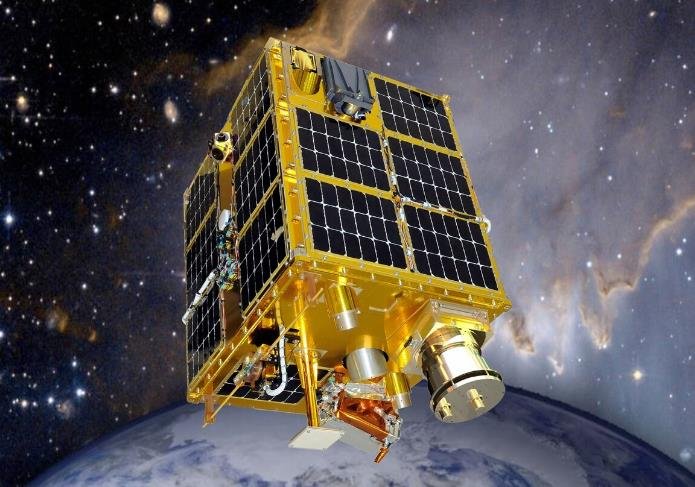Space insurers are bracing for more claims as four satellites in geostationary orbit (GEO) have experienced propulsion problems that will affect their service life. The satellites are Yahsat’s Al Yah 3, Avanti Communications’ Hylas 4, and Northrop Grumman’s Mission Extension Vehicles (MEV-1 and MEV-2).
Power Processing Units malfunction
The propulsion issues are caused by a problem with the onboard Power Processing Units (PPUs) that supply electrical power to the thrusters for station-keeping in GEO. The PPUs are provided by Aerojet Rocketdyne, which was recently sold to L3Harris. The problem only affects the hybrid chemical-and-electric version of the GEOStar-3 satellite platform, which was used to build the four affected satellites.

According to multiple insurance sources, Al Yah 3, Hylas 4, and MEV-2 have each lost one of two onboard PPUs since the issue emerged in 2022. The youngest of these spacecraft, MEV-2, launched in 2020. While reducing the voltage supplied by the remaining PPUs appears to have stopped the power modules from failing altogether, insurers say the workaround will have some impact on their 15-year design life.
Insurance claims expected to rise
Space insurers are already facing more than $800 million in losses this year following two major spacecraft failures: the loss of Intelsat’s IS-29e satellite due to a fuel leak in April, and the explosion of Eutelsat’s Eutelsat 5 West B satellite due to a solar array anomaly in October. The propulsion problems on the four GEO satellites are expected to result in at least $50 million in claims, according to one of the sources.
The insurance claims will depend on the extent of the service life reduction and the value of the satellites. Al Yah 3 and Hylas 4 are both high-throughput satellites that provide broadband services to Africa and Europe. MEV-1 and MEV-2 are innovative spacecraft that can dock with other satellites and extend their lifespan by providing propulsion and attitude control. MEV-1 successfully docked with Intelsat’s IS-901 satellite in February 2020, while MEV-2 docked with Intelsat’s IS-10-02 satellite in April 2021.
Satellite operators and manufacturers decline to comment
None of the satellite operators or manufacturers involved in the propulsion issue have publicly commented on the situation. Yahsat, Avanti, and Northrop Grumman did not respond to requests for comment from SpaceNews, which first reported the story. Aerojet Rocketdyne referred questions to Northrop Grumman, which built the satellites based on its Orbital ATK-heritage GEOStar-3 platform.
The four affected satellites were all built at Northrop Grumman’s facility in Dulles, Virginia, and launched to GEO between 2018 and 2020. Al Yah 3 was launched short of its target orbit by an Ariane 5 rocket in January 2018, requiring the satellite to burn through fuel reserves to get back on track in an initial hit to its service life. Hylas 4 was launched in April 2018 on an Ariane 5. MEV-1 was launched in October 2019 on a Proton-M Briz-M rocket, while MEV-2 was launched in August 2020 on an Ariane 5.
